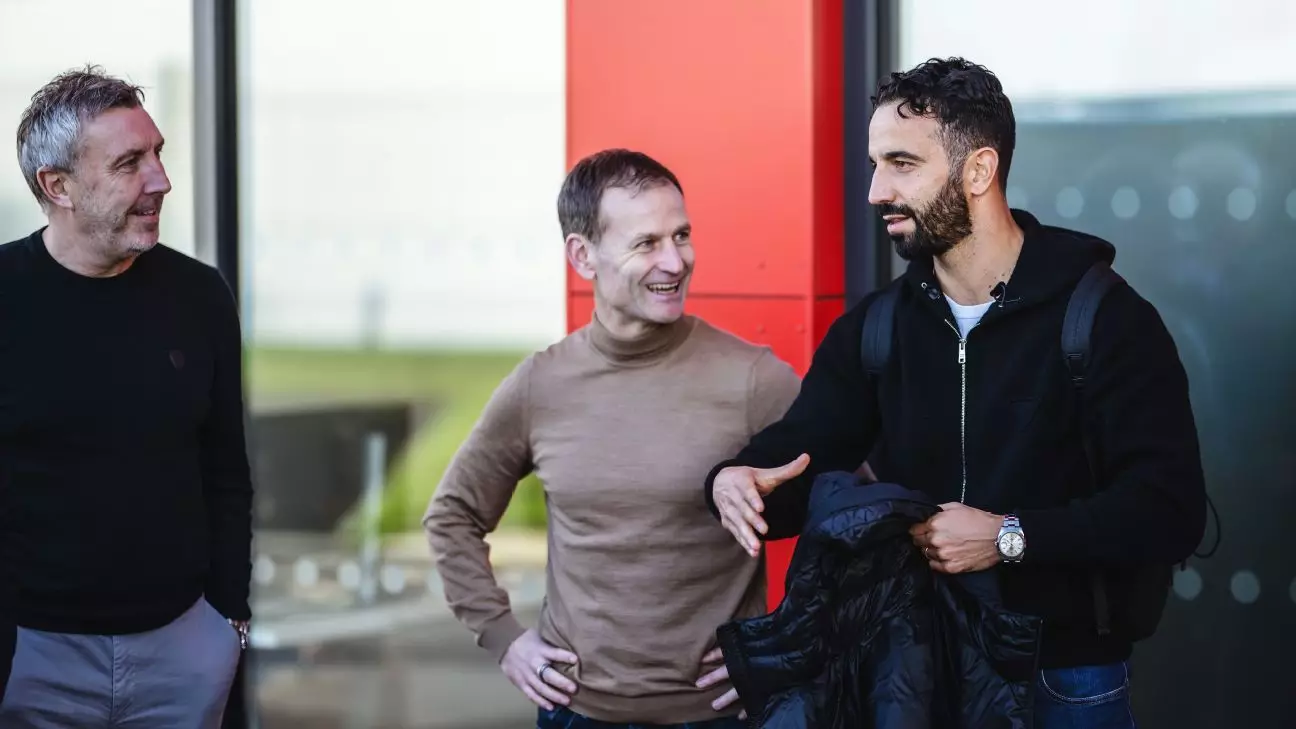The arrival of Rúben Amorim marks a new era for Manchester United, and another chapter in the storied but tumultuous history of the club since the departure of Sir Alex Ferguson in 2013. As the sixth permanent manager at the helm, Amorim joins a list that includes David Moyes, Louis van Gaal, José Mourinho, Ole Gunnar Solskjaer, and Erik ten Hag—each of whom have grappled with the club’s diminishing stature in both domestic and European competitions. Despite varying degrees of success, none have been able to restore the once-prestigious legacy of Manchester United as a perennial title contender in the Premier League and Champions League.
At just 39 years old, Amorim arrives in England with an impressive resume, having secured two league titles while managing Sporting CP. Nevertheless, he recognizes the immense challenges that lie ahead at United, where ambition far exceeds recent performances. As he gears up for his first match against Ipswich Town on November 24, the weight of a team’s legacy and fans’ expectations rests on his shoulders.
One of Reverend challenges Amorim faces is adjusting the squad’s dynamics to fit his tactical philosophy of a 3-4-3 formation. He has emphasized the necessity of starting with a structure familiar to him for maximum effectiveness. However, United’s existing squad is better suited for variations of a 4-3-3 formation, leaving Amorim in a conundrum: can he adapt the players to fulfill these new roles effectively, or will he be forced to compromise for the sake of tactical fit?
Amorim’s preference for a 3-4-3 arrangement presents immediate challenges in personnel. While the club boasts depth in central defense with six senior centre-backs, finding effective wing-backs could prove more complicated. The conversion of traditional full-backs into more attacking-minded players will be essential. Names like Diogo Dalot, Noussair Mazraoui, and Luke Shaw are natural candidates for this transformation. Players like Alejandro Garnacho and Amad Diallo may also find their roles shifting significantly, potentially being molded into hybrid full-backs with additional defensive responsibilities.
This strategic shift to accommodate two inside forwards in the formation will require critical adjustments from prominent players. Notably, Marcus Rashford could be slotted into one of the No. 10 roles alongside Bruno Fernandes. However, this would entail a compromise, as Rashford has historically excelled playing in a more advanced position. The question remains whether he can adjust his game to meet the demands of Amorim’s tactical framework, particularly in the defensive duties that have been highlighted as weaknesses in his past performances.
Another substantial hurdle for Amorim will be addressing the goal-scoring deficiencies that haunted Erik ten Hag’s reign. United’s scoring tally under Ten Hag was starkly outpaced by both Manchester City and Newcastle United, marking a significant concern for Amorim as he takes over. With a historical strike rate at Sporting that yielded consistent goals, the pressure is on him to cultivate a similar atmosphere at Old Trafford. Rasmus Højlund or Joshua Zirkzee are the most likely candidates to lead the line, but questions linger about their current form and ability to find the net.
Amorim’s successful track record with striker Viktor Gyökeres at Sporting demonstrates his potential to refine attacking talent. If he can instill a sense of productivity and confidence in Højlund, who has yet to find form since arriving from Atalanta, it could significantly influence the team’s trajectory moving forward.
Currently languishing in 13th place, United’s ambitions must be grounded in realistic expectations. While immediate victories over heavyweights like Manchester City may be overly optimistic, developing a reputation for resilience at Old Trafford is attainable. Amorim has inherited a hostile climate for opposing teams, having witnessed United’s struggles at home last season, where defeats became all too common.
While Amorim must navigate the inevitable teething issues that accompany the transition of managerial styles mid-season, an emphasis on cohesive results could serve as the bedrock for his tenure. Home fixtures against teams perceived as less daunting, like Bodo/Glimt and Everton, present an ideal opportunity for him to build momentum.
One major critique of Ten Hag’s tenure was the lack of visibility in his tactical philosophy, leaving fans scratching their heads regarding the team’s identity. Amorim must ensure clarity in his strategies, even if adaptations to the Premier League are necessary. Establishing a coherent style of play will be paramount; only then can he genuinely engage the fanbase and inspire confidence throughout the club.
As Amorim embarks on this challenging but potentially rewarding journey, the footballing world will keenly observe whether he can indeed overturn United’s flagging fortunes and reignite the flame of success that has dimmed in recent years. Success will not come overnight, but through strategic adaptations and an unwavering pursuit of excellence, Amorim has a chance to etch his name into United’s storied legacy.


Leave a Reply